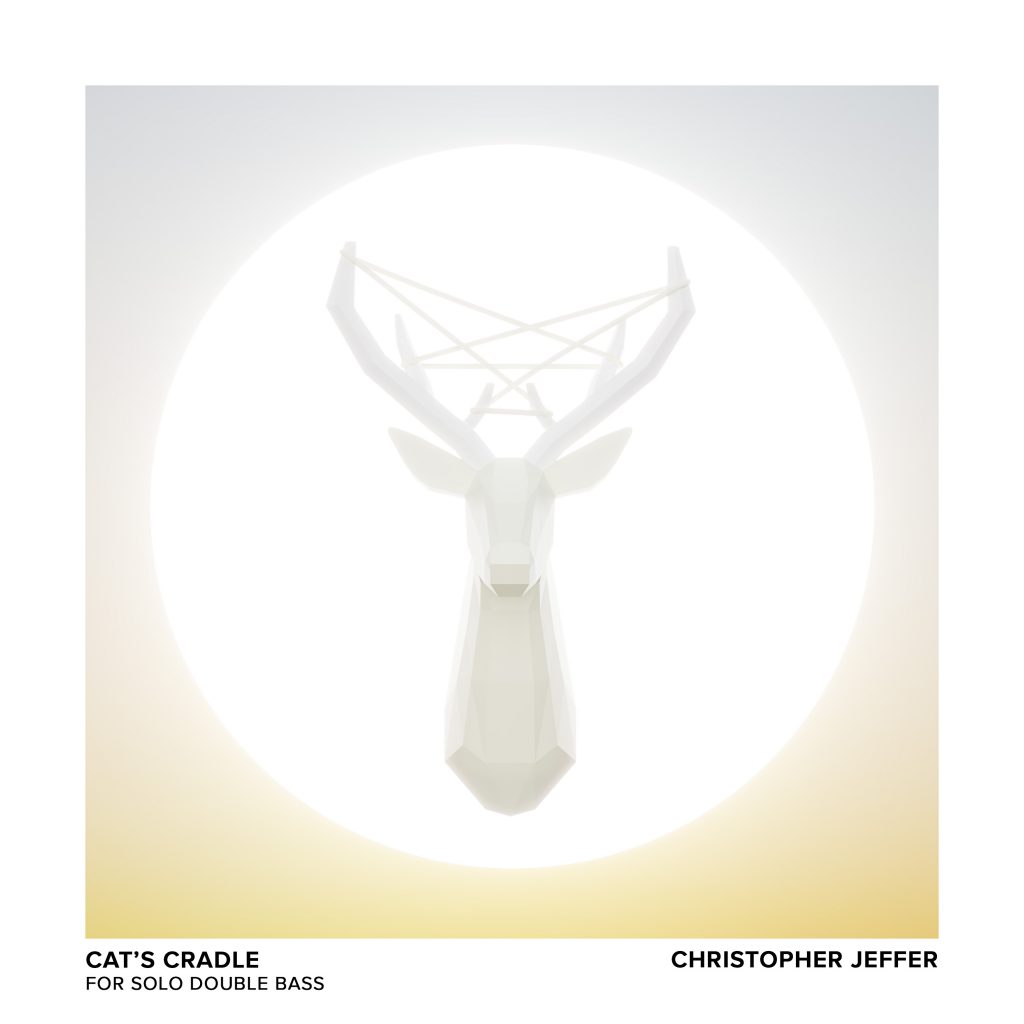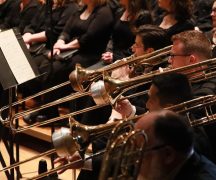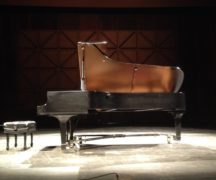BY ANDREW BAILEY
BG Independent News Correspondent
Inspired by author Kurt Vonnegut’s “Cat’s Cradle,” BGSU graduate Christopher Jeffer is releasing a contemporary classical EP today (May 23).
Jeffer said “Cat’s Cradle For Solo Double Bass” is “a loose lifting of the metaphor in the novel,” a winding story which follows the narrator as he attempts to write a book about the atomic bomb dropped on Hiroshima, Japan, only to end up becoming president of an island nation following the religion of Bokononism and discovering a more dangerous water-freezing isotope.
Jeffer specifically took inspiration from the disjunct structure of the novel, which follows a central character on a journey that ends far from where it began.
“The structure (Vonnegut) creates with that, here are all these little parts that have nothing to do with the whole … and somehow these antithetical, oxymoronic items come together to compose this other whole,” Jeffer said.

For his EP, Jeffer wanted to capture the feel of disconnected parts coming together to create an unexpectedly fluid whole through his skill on the double bass.
The EP consists of three tracks, — “threads, wisps,” “fo[rest]land” and “glass sparkles as it bounces” — each about two to three minutes in length. The compositions were commissioned from three Bowling Green-based composers: Steven Naylor, Leah Tracy and Delanie Molnar.
Jeffer has been a fan of the three composers’ works for years, he said. He gave them a broad framework that left them with space to be creative and “go nuts with it.”
He was there to provide guidance in regard to his vision for the final product. He wanted the pieces to be “playable, accessible and idiomatic to the instrument” and was incredibly happy with the results.
The composers brought their own unique flair to their tracks. Naylor’s “threads, wisps” evokes early 1900s French impressionism, Tracy’s “fo[rest]land” has Americana and roots music influences and Molnar’s “glass sparkles as it bounces” has a modern feel to it with a fixed electronic track accompanying Jeffer’s bass performance.
Jeffer recognizes that each of the tracks seem like they belong on different albums from different eras, but they complement each other in a way that will surprise listeners. “You’d think the disjunct, broken style would make it feel heavy and stuck, but I think it really flows from track to track … it’s chaos, but it really arcs up in a natural way.”
Once he realized how distinct each of the tracks he commissioned was, he saw Vonnegut’s novel as a perfect metaphor for his performance. “There’s a lot of these parts that filter through certain elements of the performance and engineering, The way the pieces came together, it’s just really beautiful, it’s surprising how they don’t seem connected, but they sit really nicely together.”
Jeffer started playing music in middle school when he picked up the bass guitar, and during high school he fell in love with the upright bass. He was originally moving toward orchestral playing and even applied to multiple schools for it.
But at BGSU, he found a place for himself in contemporary concert music, which extends the classical music tradition into eclectic sound worlds. Jeffer, who studied bass with Robert Rohwer, started dipping into recording a couple of years ago, and with about six years of double bass under his belt at the time, he set upon making an album of his own.
As he was nearing his spring graduation with a Bachelor of Music in Music Performance with a minor in sound recording technologies, he went to Michael Laurello, manager of recording services at the College of Musical Arts and a mentor to Jeffer, with an idea to create the newly composed album of art music.
Laurello signed on as Jeffer’s primary advisor for the project and they began further developing the EP.
Under Laurello’s wing, Jeffer said he flourished creatively. He took on the roles of production manager and mixing engineer. Fulfilling three different roles in the putting the EP together, he was challenged on multiple fronts.
“Playing on a record is tough and recording a record is tough. But both together is like a crucible. You play the music and then you have to go back and adjust levels,” he said. “I lived with these pieces for about a year and a half before they were ready to be recorded. I knew exactly how I wanted them to sound, and it was tough to move on. I was always like, ‘I can do one more take, let’s do this again.’”
And as the production manager, he had to deal with “the mind games” of making it all fit together in the way he wanted, from long hours working with recording and editing software to commissioning the work.
“I must have sent 16 hours’ worth of emails over the course of this entire project that took a year and a half,” he said.
Still in school, while working on “Cat’s Cradle,” Jeffer had moments where he considered taking the easy route and rushing the work, but through encouragement from faculty and peers, “leaned into it hard and powered through.”
Once finished, he passed it on to Laurello to be mastered, and he’s excited to share the final result.
If the opportunity arises, Jeffer hopes to perform the album at a local venue and experience the community of live music again after over a year of masks and social distancing.
“Cat’s Cradle, For Solo Double Bass” releases on all major music streaming platforms on May 23.





